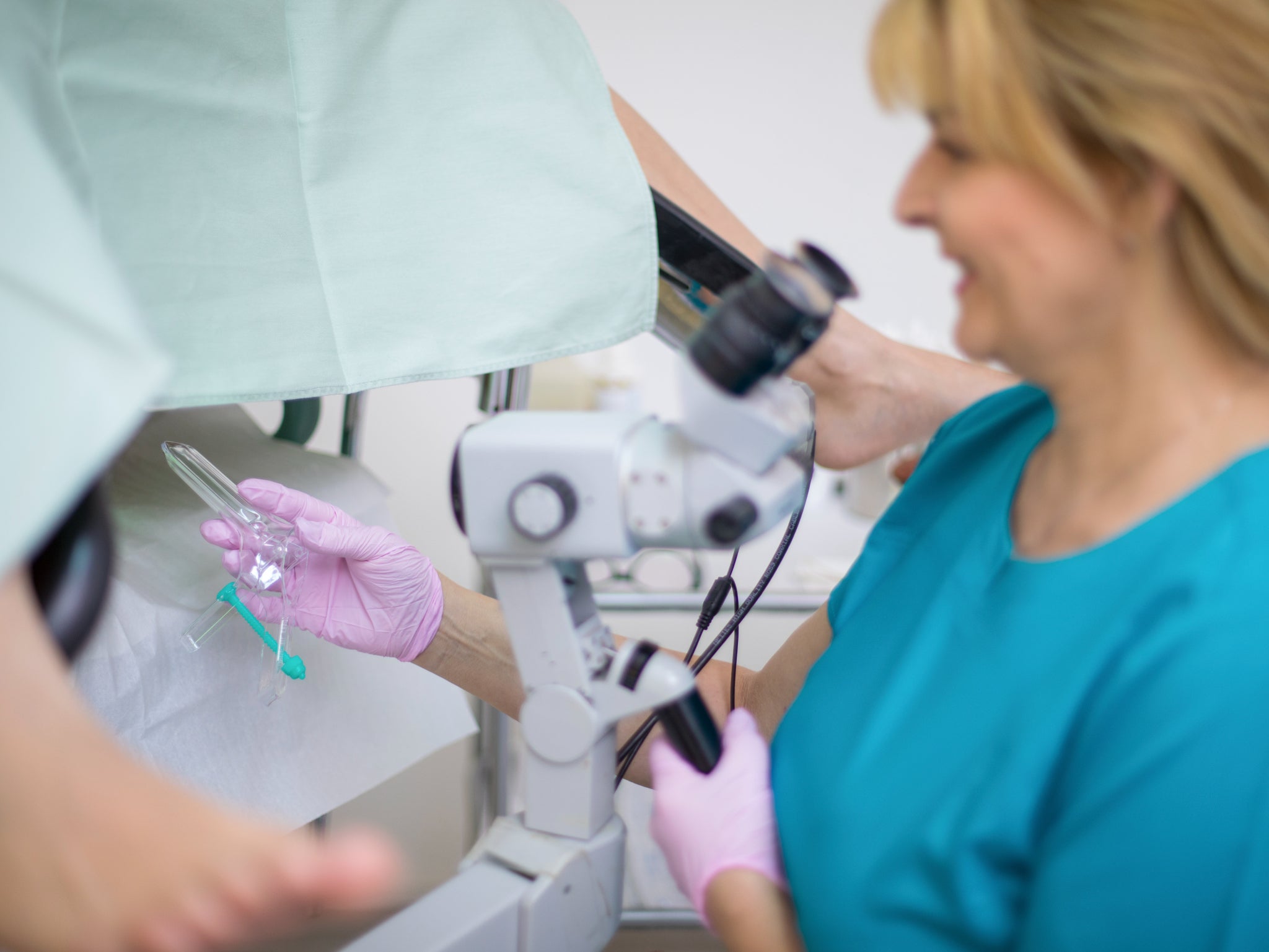Cervical cancer: Four symptoms and what to do if you spot them
One in 142 women in the UK will be diagnosed with cervical cancer in their lifetime
As Cervical Cancer Prevention Week is observed this week (23 to 29 January), healthcare professionals and cancer charities are sharing advice on symptoms to look out for.
According to Cancer Research, one in 142 women in the UK will be diagnosed with cervical cancer in their lifetime. The survival rates of cervical cancer are improved and have in the last 40 years in the UK. In the 1970s, almost half of women diagnosed with cervical cancer survived their disease beyond ten years, now it’s almost two-thirds.
Last month, NHS data showed that smear test rates have fallen to a record low in the wake of the pandemic. Just 69.9 per cent of eligible women between the ages of 25 and 64 took up the offer of free cervical screening last year, meaning that uptake is now at its lowest for a decade.
Meanwhile, research conducted by Healthcare Transformers suggests that one in four UK women, aged between 25 and 64, haven’t been for a smear test in the last five years or never at all – despite the recommended testing time frame to be every three to five years.
Though cervical cancer may not cause any symptoms at all, or symptoms might not be immediately obvious, Samantha Dixon chief executive of leading cervical cancer charity, Jo’s Cervical Cancer Trust, has shared four of the most common symptoms of cervical cancer with The Independent.
Unusual vaginal bleeding
Vaginal bleeding that seems unusual, including after menopause, after sex, or between regular periods, could be a sign of cervical cancer. “Although this may be worrying, remember there are many different reasons for unusual bleeding that may not be related to cervical cancer,” says Dixon. “These include hormonal contraception and cervical ectropion.”
Changes to vaginal discharge
Dixon warns that a change in the consistency of vaginal discharge could also be an indicator to visit your doctor. Dixon says this could be when it “becomes thicker, changes in colour or smells different – particularly if it smells unpleasant”. It’s also important to remember that vaginal discharge can change for different reasons that aren’t related to cancer, such as an infection of changing hormones, says Dixon.
Pain or discomfort during sex
“Sex may be painful for lots of reasons, both physical and psychological, that aren’t related to cervical cancer,” says Dixon. It is important, however, that if the symptoms are ongoing and seem abnormal to you, to visit a doctor.
Unexplained pain in your lower back and pelvis
Dixon advises that if you experience “unexplained” discomfort and pain in your lower back and between your hip bones (pelvis), it is a good idea to tell your GP. They add: “Particularly if there is no obvious reason for it, it is affecting your daily activities or lasts two to three weeks or longer.”
“It is important to remember that these symptoms usually happen for reasons other than cervical cancer,” assures Dixon. “But it is also important to contact your GP straight away, so they can give you reassurance and support.”

Early stages of cervical cancer, however, often have no symptoms. “That’s why taking up your invite to cervical screening is so important,” says Dixon. “Cervical screening provides a high degree of protection against cervical cancer, it can stop it before it even starts. It’s a really important test but not always easy and there are lots of different reasons why can be difficult, including previous trauma or experience of sexual violence and if possible being harder post-menopause, embarrassment, getting an appointment or not understanding what the test is for.”
Smear tests are free and take less than five minutes to complete. During a smear test, a nurse or doctor inserts a speculum (a tube-shaped tool) into the patient’s vagina. The nurse will open the speculum so they can view the cervix and take a small sample of its cells.
You can find the NHS’ cervical cancer guidance here.
Join our commenting forum
Join thought-provoking conversations, follow other Independent readers and see their replies
Comments


Bookmark popover
Removed from bookmarks